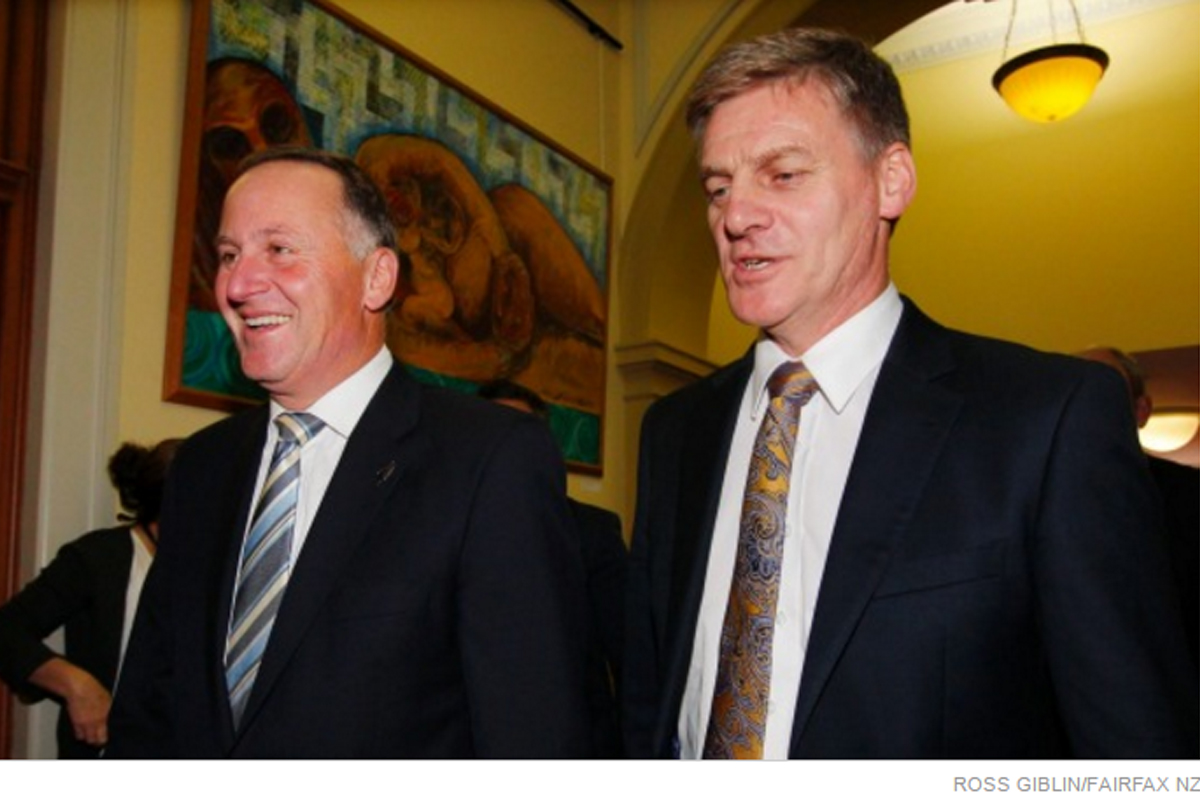A week on from the announcement that John Key is stepping down as Prime Minister we’ve had some time to digest the news and perhaps form an opinion on what it all actually means for not only the country, but the metals industry as well.
In this short time, we’ve seen the National Party quickly aligned itself behind Bill English following clear Key endorsement, and likely a bit of fresh blood in the form of Deputy Prime Minister Paula Bennett.
The question is will this policy model work for National in the next election without the magic of a crowd pulling John Key, or is this the chance for the opposition to get the upper hand? Either way, at HERA we believe it’s worth considering the ripple effects this may have later down the track.
So what are our management teams views?
“It’s been impressive what John Key has achieved in his Tourism Minister’s portfolio, which was based on a well thought out strategy and leadership – I can only imagine the benefits to our industry if he’d have created a similar Ministry of Manufacturing growth strategy for us! Instead, our sector and R&D has been the remit of Minister Steven Joyce – and now that he’s poised to become Finance Minister, the question we have to ask is who will take over?
I also hold hope that with a charismatic leader appearing to now be missing in all parties – the election focus will come back to where it should be: the policies.
In this pre-election stage where party politics are formulated, we certainly will be working with Metals NZ to advocate our industry policy document which clearly spells out what we believe will future proof a sustainable local manufacturing sector.
It’s time to think about what policy will apply to incentivise R&D spending for our small, medium and large companies, or how we’ll fight for a level playing field against imports.
Will the implementation of our government public sector procurement rules be a priority? Will Rule 22 which doesn’t require main contractors to subject subcontractors to the balanced decision making criteria go? Will our manufacturing sector be protected against practices such as non-conforming products or dumping?
With so many questions to be answered, it’ll be interesting to see which parties respond best to meet our needs and subsequently win our votes.”
“Funding mechanisms have been particularly difficult to secure in the research and development space – and under the financially focused lead of English this could potentially get tougher.
With this in mind it’s a good idea for any members looking to seek funding to think ahead and get early applications underway under the current rules while they can.”
“For the welding fabrication sector it is really too early to draw any conclusions on how all of this will affect us, but we hope that the structural steel industry will remain a very strong driving force.
The positive development of this sector is underpinned by excellent performance of steel structures in recent earthquakes, and we’ll continue focussing on quality through the Steel Fabricator Certification (SFC) scheme, supporting our members with research and technical advice, and running courses to upskill our workforce and keep them in line with international best practice and a competitive market.”
“For the structural sector, the market development activities that began at HERA’s inception are paying off with a healthy market share for structural steel in multi-storey buildings – and it’s hoped a thriving economy will continue under English.
However, globalisation has meant that procurers need to be more educated in their purchasing habits; in particular a government more supportive of industry quality control initiatives to ensure awarding work is not based on cost alone, along with encouraging closer economic relations with Australia through driving harmonization between AS/NZS standards.
As we look forward to the changing political environment of New Zealand, its hoped the government will resist the temptation to provide quick fixes through regulation, rather than through the consensus based approach in standards.”
So there you have it – rest easy, but do your homework.
When it comes to understanding if your business could be affected in the long term, taking the time now to do a quick analysis of your external opportunities and threats under a changing political environment can go a long way in helping you identify strategic focuses needed for the new financial year so you stay ahead of the game.
Remember, that as your industry support our doors are always open if you feel some research is required to better understand the circumstances – particularly if you feel you’ve discovered something that might adversely influence industry off the back of this. If warranted, we can take a closer look ahead of time so we can better inform a proactive approach, rather than as a reaction to market movement. And, if it is an advocacy issue or training that is need, we’ll be able to leverage our relationships with Metals NZ and like-minded organisations so our industry has the right support at the right time.





